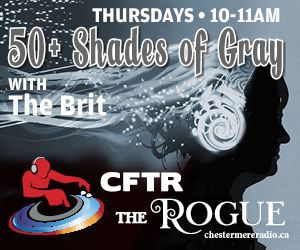Always looking for the opportunity to enjoy a night out with my regular posse of drinking companions, I gathered them all together last week, for the 3rd annual National Rum Day celebrations.
I could not determine which of the big distillers came up with the idea that Rum needed its own national day of celebration, but not being the type to look a gift horse in the mouth, I made haste to the local cocktail bar to enjoy the festivities.
The history of rum goes back to the year 1620, when a plantation worker on the Caribbean island of Martinique was toiling in the hot sun for the French overlords that ruled the island.
The plantation worker was tasked with gathering up the waste products of the sugar cane harvest, namely a syrupy liquid called molasses, that was typically fed to the local cattle.
After tasting a bit of molasses that had fermented in the sun, a new industry was born, and the sugar plantations could now turn their waste product into liquid gold. Rum is now one of the major exports of several Caribbean islands, and is enjoyed all over the world.
Rum is produced by adding yeast to molasses in order to ferment the sugar content into alcohol, which takes as little as a day or two. This produces a liquid with a strength of only 10% ABV, which is then distilled into the spirit we all know and love.
Distilleries quickly appeared on every island with a sugar cane plantation, and the Caribbean is still home to the oldest rum distiller in the world, namely Mount Gay, which opened its doors in 1705, and is still going strong.
Interestingly, sugar cane is not native to the Caribbean, but made its way from its ancestral home of Southern Asia to the Mediterranean via Arab traders in the 8th century, and eventually made its way to the New World in the 1490s by way of Christopher Columbus while in service of the Spanish crown.
After the rum is distilled to approximately 40% alcohol by volume, it is aged in oak barrels that once held whiskey to give it a more elegant taste. While aging in the oak barrels, the rum changes from its naturally clear hue to a golden brown.
Rum can be aged in the barrel for as little as one year, or as long as thirty. However, once the rum is removed from the barrel and bottled for sale, the effects of aging pretty much stop. Unlike red wines, rum does not improve with age in the bottle, so don’t worry about drinking a bottle of rum before its time.
The three basic of rum are white, dark, and spiced, although countless variations exist for each style.
Despite coming from a dark liquid molasses, the distillate produced in the still is crystal clear, and later turns a golden or caramel colour from extended contact with the oak barrels used in the aging process.
If a distiller wants to produce a white rum, it will be filtered through charcoal to remove the colour that was picked up from the oak barrels, leaving it with a lighter-bodied subtle taste. These are typically the younger and less expensive rums, so are popular in mixed drinks like the Cuba Libre or Mojito.
Dark rums are the broadest category, as they include all rums that have not been filtered to remove the colour from the oak barrels, and there are many subtle variations in darkness and flavour.
Dark rums can vary from a light golden hue to the deepest black, and every shade in between. The very darkest and richest rums are sometimes called Black Rums, and typically are aged in barrels that have been heavily charred to impart extra flavours into the spirit.
As a general rule, the darker the rum, the longer it has been aged in oak, and will have more intense flavours of vanilla, smoke, tobacco, and the like.
Rum is typically consumed with a sweet cola or tropical juice mixer like Pina Coladas, which is typically how I enjoy the white rums. Medium-dark rums are usually enjoyed with a coke and maybe a bit of lime juice, while the darkest, richest rums are best consumed straight-up, without any mixer. Ask your friendly bartender for advice, and discover a new rum today!





